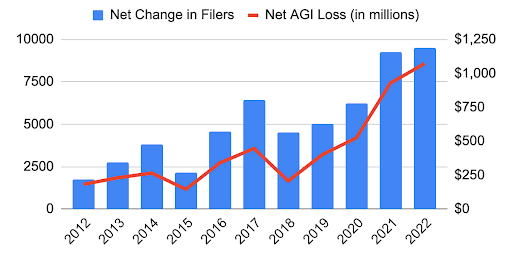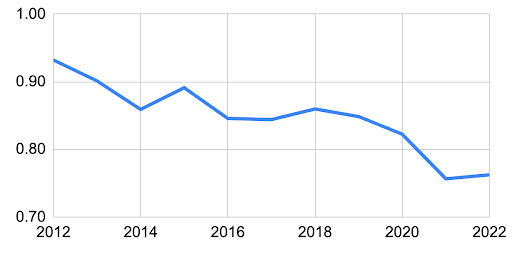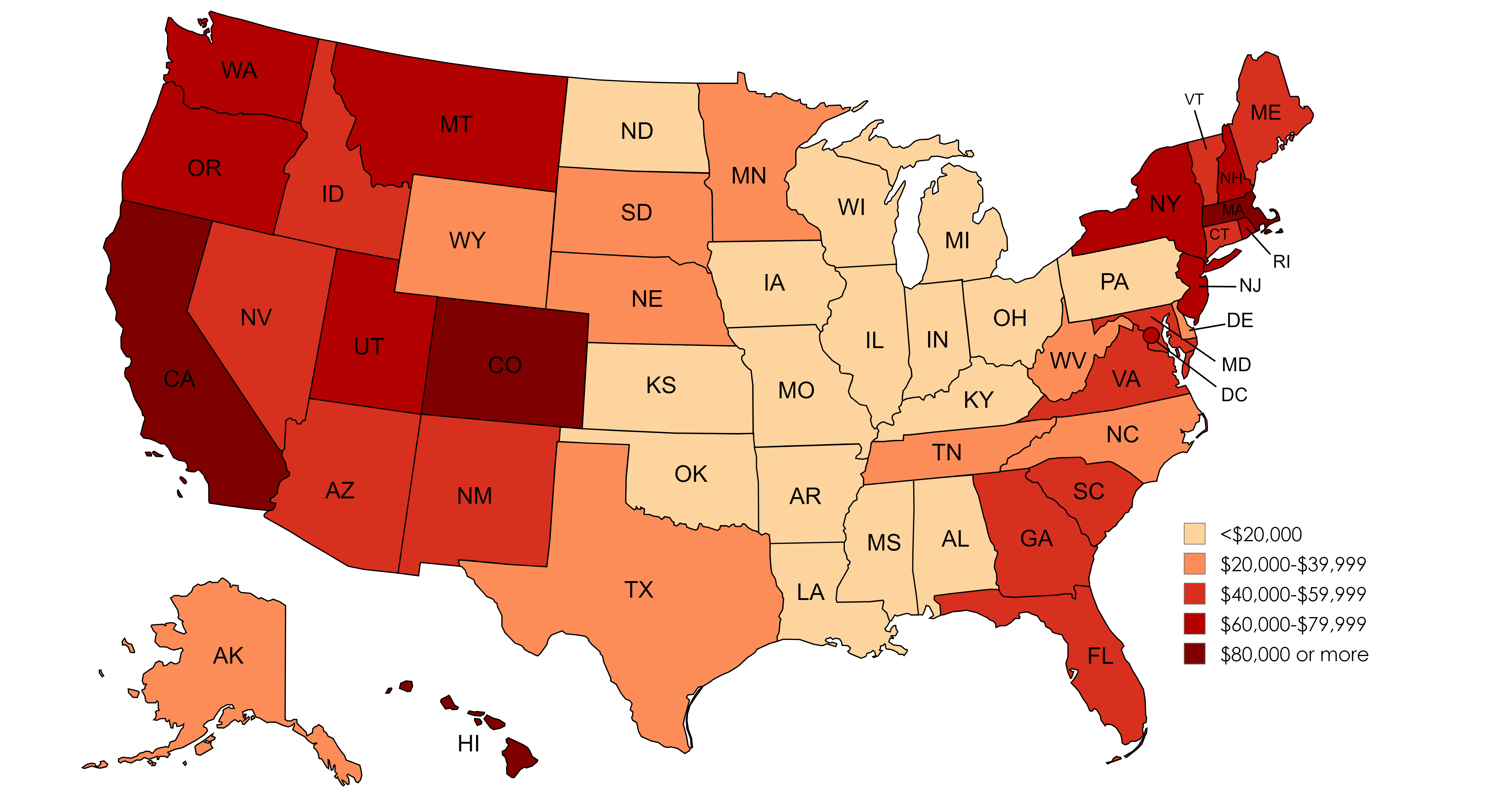The Housing Crisis has a Hand in Massachusetts Out-migration Trends
Recently published IRS data shows that net out-migration from Massachusetts among young adults ages 26-34 is the highest on record. Some 9,498 more taxpayers in this age bracket moved out of Massachusetts than moved in during 2022, up from 9,241 in 2021 and 1,769 in 2012. In 2022, the net loss of taxable income in Massachusetts from 26-34-year-olds moving out topped $1 billion for the first time. For every 100 tax filers in this age group who moved out in 2022, only 76 moved in, down from 93 in 2012.
Figure 1: Effect of 26-34-year-olds Moving on Number of Taxpayers and Taxable Income in Massachusetts

Figure 2: Ratio of 26-34-year-old Tax Filers Moving Into Massachusetts to Those Moving Out

This dismal string of statistics indicates that Massachusetts is struggling to retain young workers in the peak of their family formation years. While this trend has many explanations, a significant one is the lack of housing both available and affordable to people in this age group. An April 2024 Bankrate.com analysis found that the annual income needed to afford the median-priced home in Massachusetts was $162,471, more than twice the average taxable income for a 26-34-year-old taxpayer. And in June, a Visual Capitalist analysis estimated that a typical single working adult in Massachusetts would have to make $116,022 in annual income to “live a comfortable lifestyle,” including having adequate savings, the highest figure in the country.
Figure 3: Gap Between Annual Income Needed to Buy the Median-Priced Home in 2024 and the Average Adjusted Gross Income Among 26-34-year-olds in 2022*

*Data visualization template courtesy of MapChart.net
The new IRS data release comes on the heels of a string of findings that also raise the alarm over outmigration from the commonwealth. A March 2024 Greater Boston Chamber of Commerce survey of 20-30-year-olds found that 25% are considering leaving the region within 5 years. When deciding how long to remain in Greater Boston, 83% listed the cost of rent as an important factor, and 78% listed their ability to buy a home.
The following month, a Boston Indicators report examined the previous 20 years of migration trends in Massachusetts, finding one of the most stark upticks in outmigration among those ages 25-44, which the report also attributed to high housing costs. The Boston Indicators report also found that the greatest share of those who left Massachusetts were well-educated middle- and high-income earners. To quote Boston University Professor Mark Williams, who released a similar study of outmigration trends in May, “these are the people the Commonwealth needs for its future workforce.”
Retaining this young talent in Massachusetts will require a proliferation of starter homes – small, well-located, family-oriented housing units that give first-time buyers a stable place on the low rungs of the housing ladder. Chapter 40Y, a 2022 state law, aims to expedite the process of permitting such homes at a local level, but as of July 2024 no locality has adopted a new zoning district under 40Y, and thus no new homes have been constructed.
It may also help to build more off-campus student housing, as currently students often live in group arrangements in units otherwise suitable for small and growing families. Even the City of Boston does not have its own zoning category for non-university-owned student housing, making it very difficult for developers to meet the needs of graduate students and others who wish to live in dorm-style arrangements unless they partner with a university.
The upshot is that, in order to stem the tide of outmigration among young professionals and families from Massachusetts, housing production and affordability must improve dramatically. Until then, many workers in their mid-20s to mid-30s will likely continue moving elsewhere.
Andrew Mikula is Pioneer Institute’s Senior Housing Fellow. Beyond housing, Andrew’s research areas of interest include urban planning, economic development, and regulatory reform. He holds a Master’s Degree in Urban Planning from the Harvard Graduate School of Design and a Bachelor’s Degree in Economics from Bates College.



